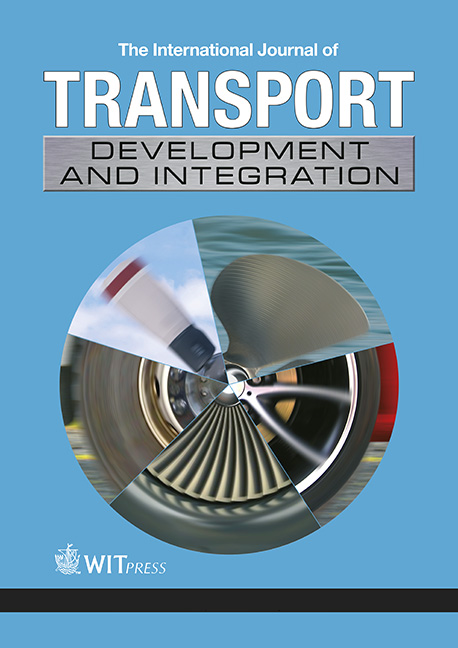Driving factors of sustainable transportation: Satisfaction with mode choices and mobility challenges in Oxfordshire and Hamburg
Price
Free (open access)
Volume
Volume 3 (2019), Issue 1
Pages
11
Page Range
55 - 66
Paper DOI
10.2495/TDI-V3-N1-55-66
Copyright
WIT Press
Author(s)
Kimberly Tatum, Katie. Parnell, Tuba Inal Cekic & Joerg Knieling
Abstract
Recent decades have seen a shift towards more sustainable transport and support of more balanced development of all modes of transport by many governments, with scholarly articles contributing to the discourse. However, users’ attitudes and satisfaction with existing modes of transport determine ultimate acceptance of new transport opportunities. Inclusion of the public is also essential to make a change towards new and more sustainable mobility choices. Accordingly, travel satisfaction as a source of travel mode choice is a significant aspect in the analysis of urban mobility. Different travellers with varying mode choices have different needs and priorities, influencing appreciation of and satisfaction with various aspects of travel.
This paper investigates key factors influencing individual travel behaviours for different travel modes by examining the interactions of mode choice and traveller satisfaction with mobility challenges. Primary data were collected through online surveys conducted as a part of the EU-Horizon 2020-funded Cities-4-People project. Quantitative data were collected to analyse the socio-demographic charac- teristics of citizens moving daily in the city, their routes, mobility challenges and satisfaction with travelling. This paper presents the findings of the survey conducted in Hamburg-Altona (Germany) and Oxfordshire (UK).
Survey results confirm previous findings and contribute additional evidence suggesting that the main sources of satisfaction from sustainable transportation modes appear to be service quality and infrastructure. Deeper consideration of satisfaction by mode usage allows for some pronounced differences between user types to be analysed.
Keywords
mobility challenges, sustainable mobility, travel behaviour, travel mode choice




